Simplifying Life Insurance in India
11 Developmental Milestones of an 18 Month Old Baby
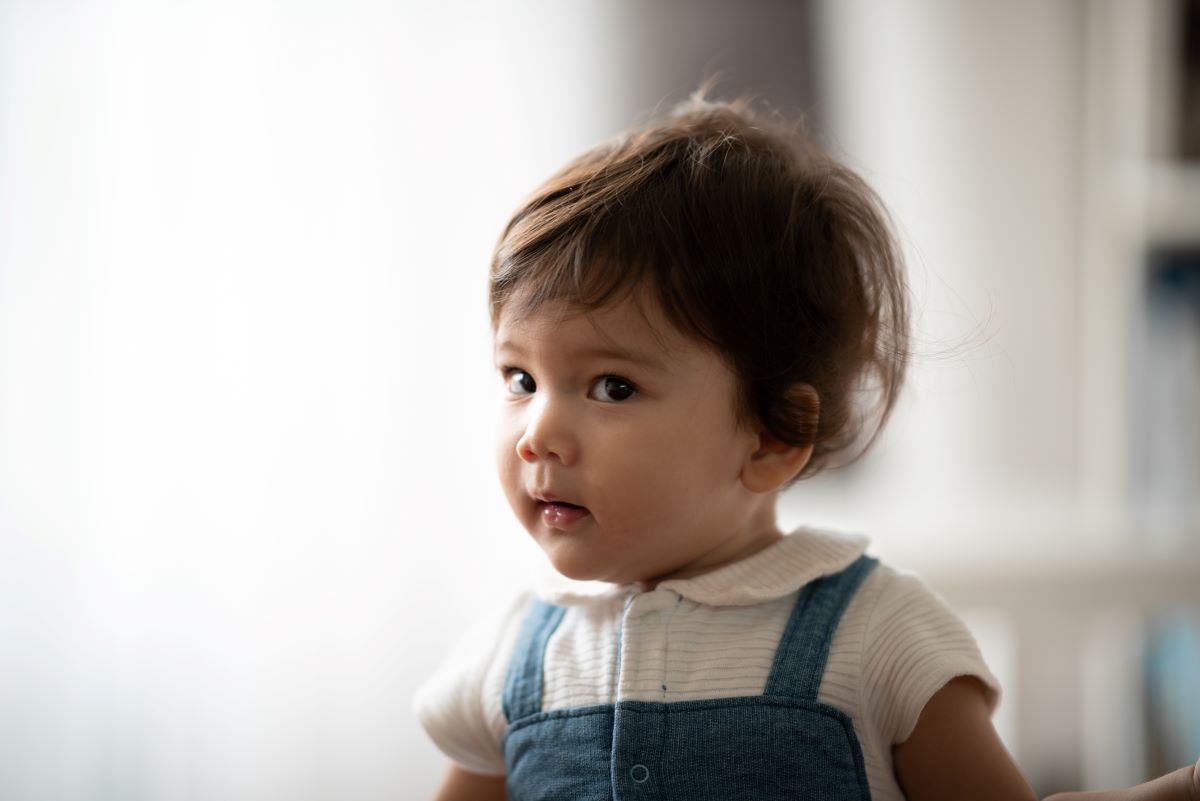
Most children can reach some developmental milestones by the age of 18 months. At this time, the babies start to walk show more interest in the objects around them and try to reach out for them or play with them. This age or thereabouts tends to be where children hit critical developmental milestones, although there is no schedule.
Read the article to discover what typical milestones your baby can achieve at this age and how to further your toddler's growth.

Table of Contents

What Most Babies Do by 18 Months?
Children at least 18 months of age achieve precise nutraceutical and extra-environmental categories, showing considerable advancement. They focus more on their environment, using voice, actions, and even a few words. Your 18 month old toddler is now walking and using basic words. At this age, children love to play and explore.
By that period, the children start fine-tuning their muscle movements to interact with their surroundings. Every child is unique and develops at a different pace and rhythm. However, one can expect specific development patterns in most children at this age.
18 Month Milestones & Development Checklist
1. Walking Milestones For an 18 Month Old Baby
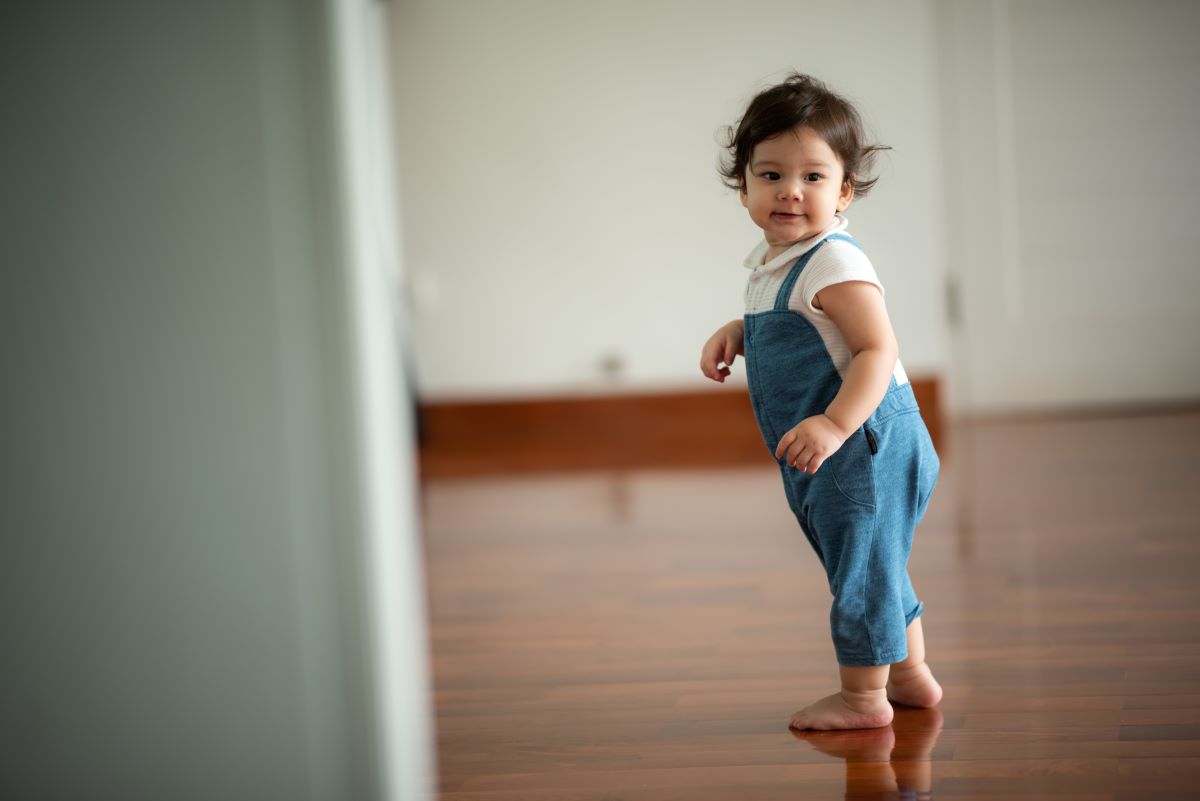
Walking Milestones for an 18 month old:
- Independent Walking: Moves about, walking steadily with body confidence, without help from anybody.
- Running: When one begins to run, let it be understood that it is more like a brisk walk or trot than a full-on run.
- Walking Backward: Walks backwards for specific spacings with better coordination and development.
- Stairs: Ascends stairs with assistance while may decide to descend with help to develop the baby’s strength.
- Balance: By 18 months, a toddler can demonstrate a more even stance while moving on rough patches.
- Walking with Objects: Can walk while pushing or pulling a toy or stroller. A child can also walk around by pushing or pulling a toy or a stroller.
2. Visual and Hearing Milestones For an 18 Month Old Baby
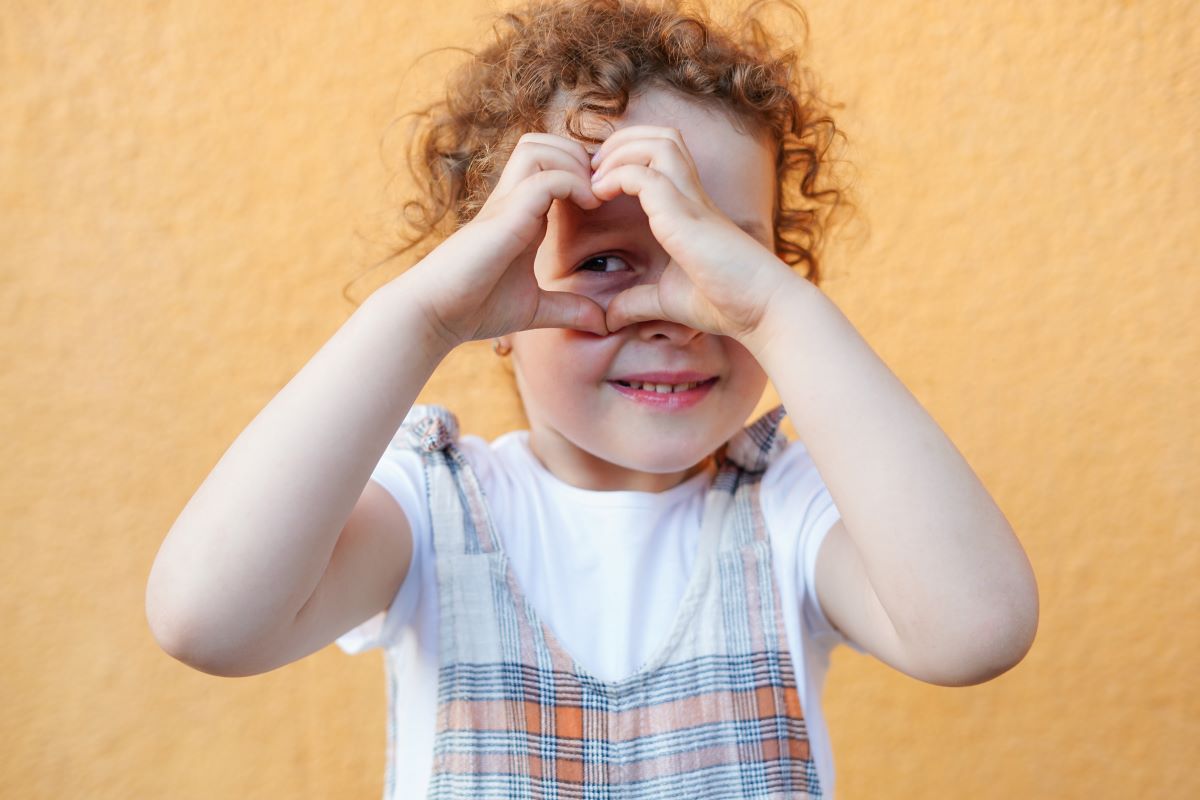
Visual Milestones:
Visual milestones refer to the critical stages in a child's visual development. These milestones help track how a child's vision progresses from birth through early childhood.
- Appealing Visual Things: Easily identifies familiar objects and people at a distance to visualise.
- Tracking Movement: Visual pursuit of objects in motion, such as following the ball on the floor as it rolls.
- Examining Images of the Visual Representation: More inclination to books with illustrations and want to point at things that they know.
Hearing Milestones:
Hearing milestones mark the important stages in a child's auditory development. These milestones are crucial for understanding how a child’s hearing and response to sounds evolve.
- Responding to Name: When they hear their name being called or someone speaking to them, they look in the direction of the sound.
- Understanding Simple Commands: Without looking at someone, they can understand and accomplish simple commands, for instance, “come here” or “sit down”.
- Sound Imitation: They like to make sounds within their mouths that they hear as living things or that are very common.
3. Smell and Touch Milestones For an 18 Month Old Baby
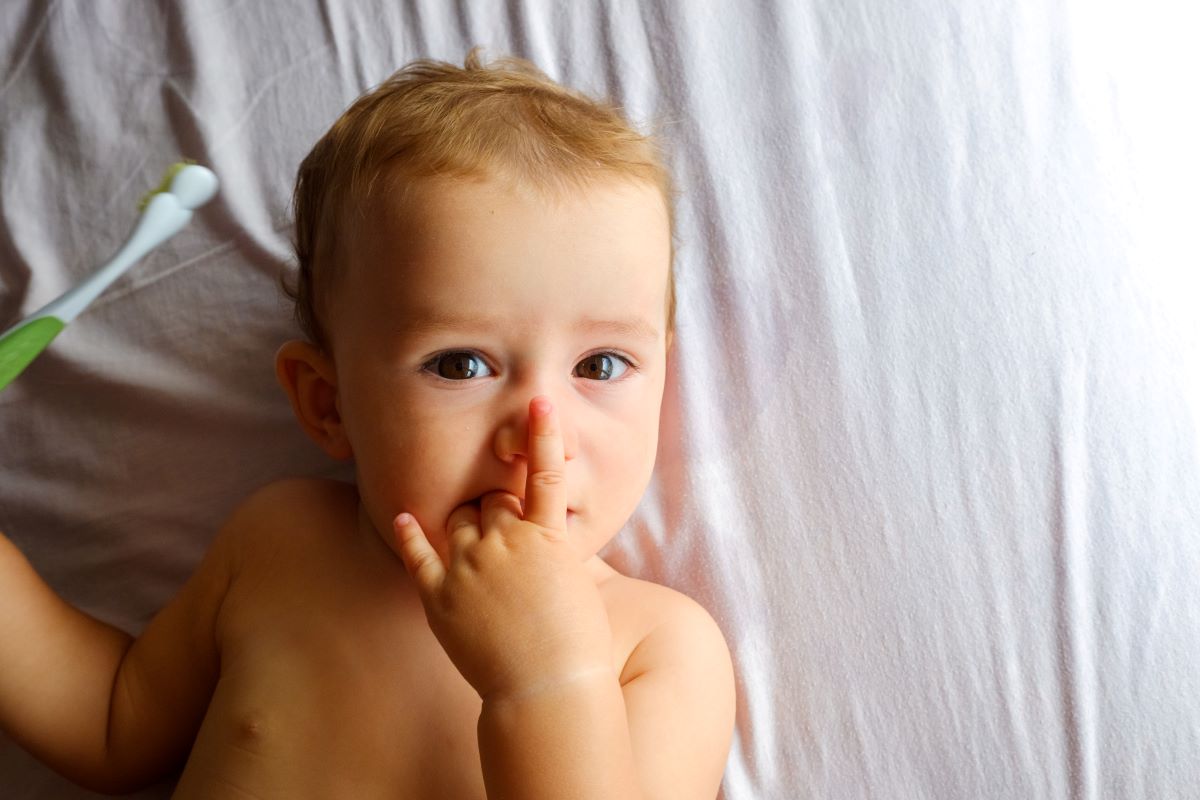
Smell Milestones:
By 18 months of growth, babies start recognising and responding to different smells, showing preferences for familiar scents.
- Scent Recognition: Able to differentiate between familiar smells like their parent's perfume or food they frequently eat.
- Reaction to Strong Scents: May show clear preferences or dislikes toward strong smells, such as pleasant or unpleasant food aromas.
- Curiosity about New Smells: More likely to sniff new items, demonstrating curiosity about new smells they encounter.
Touch Milestones:
At 18 months, babies become more skilled at using their sense of touch to explore their environment.
- Tactile Exploration: They love to touch everything from soft blankets to rough surfaces, using their hands to gather sensory information.
- Understanding of Textures: Begin to identify and react differently to smooth, bumpy, soft, or hard surfaces, showing preferences.
- Self-Soothing through Touch: Use favourite textures (like a soft toy or blanket) for comfort and reassurance.
4. Sleep Milestones For an 18 Month Old Baby
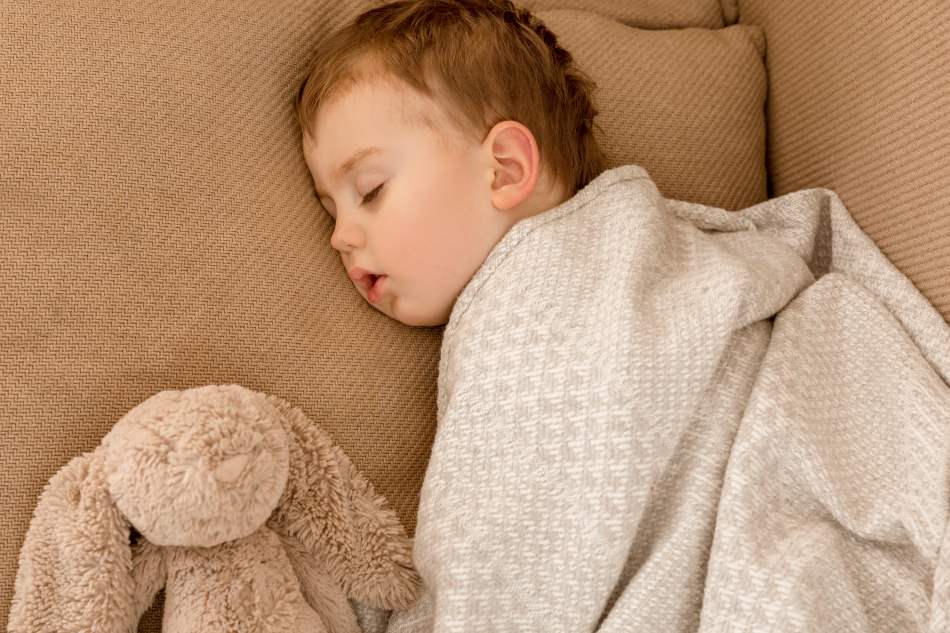
Sleep Milestones for an 18 month old:
- Night Sleep: Most toddlers are expected to sleep between 10 and 12 hours at night, although some can still wake up briefly.
- Daytime Naps: The morning nap may be gradually removed until the child is at least 18 months old, at which point the longer afternoon nap usually becomes customary.
- Routine: The process of getting ready and going to bed is framed so that the evening is spent winding down and preparing for sleep.
- Conscientious Sleep Routine: Even timing when the toddler goes to bed and when they wake up is not too much in this problem statement.
5. Health Milestones For an 18 Month Old Baby
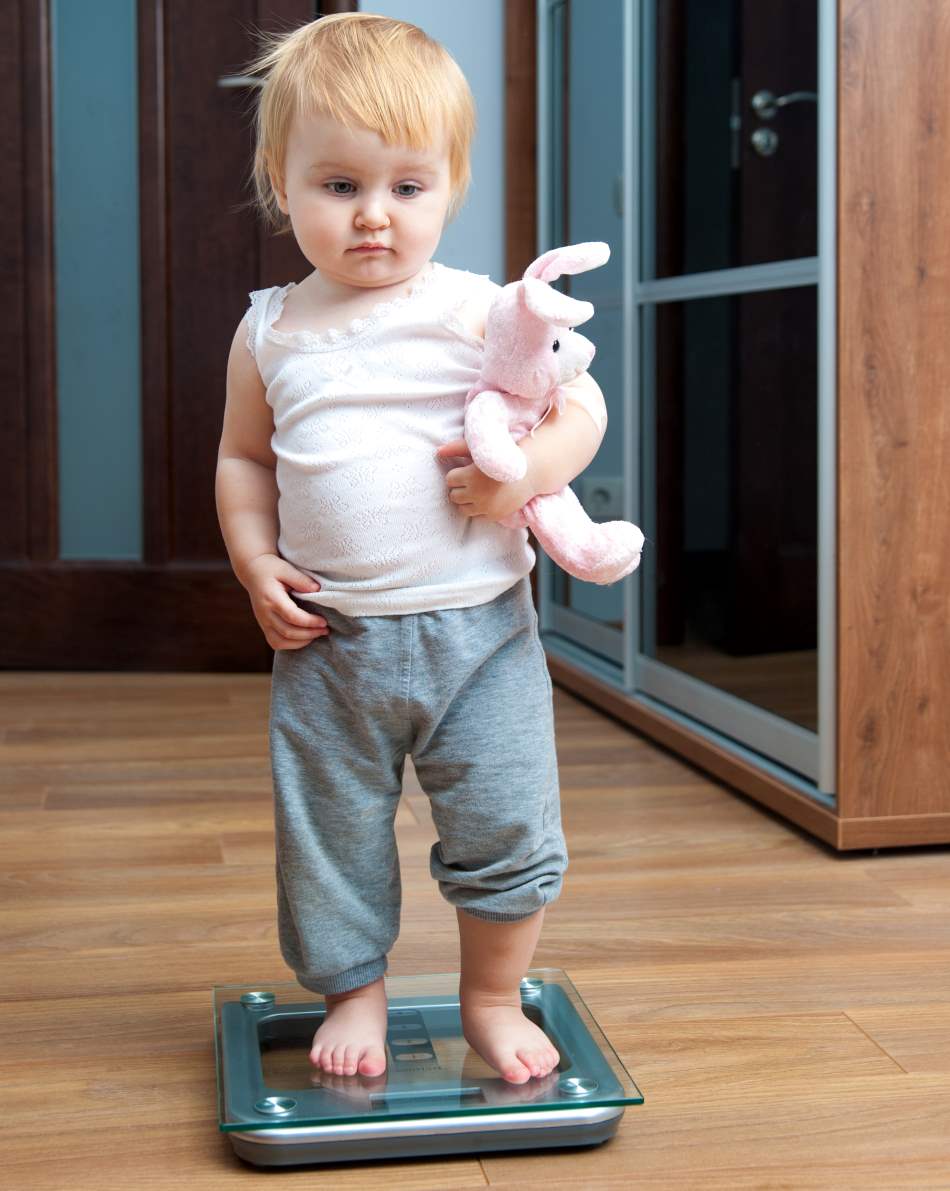
Regular check-ups with a paediatrician can provide further insights into your child's growth patterns.
6. Feeding Milestones for an 18 Month Old Baby
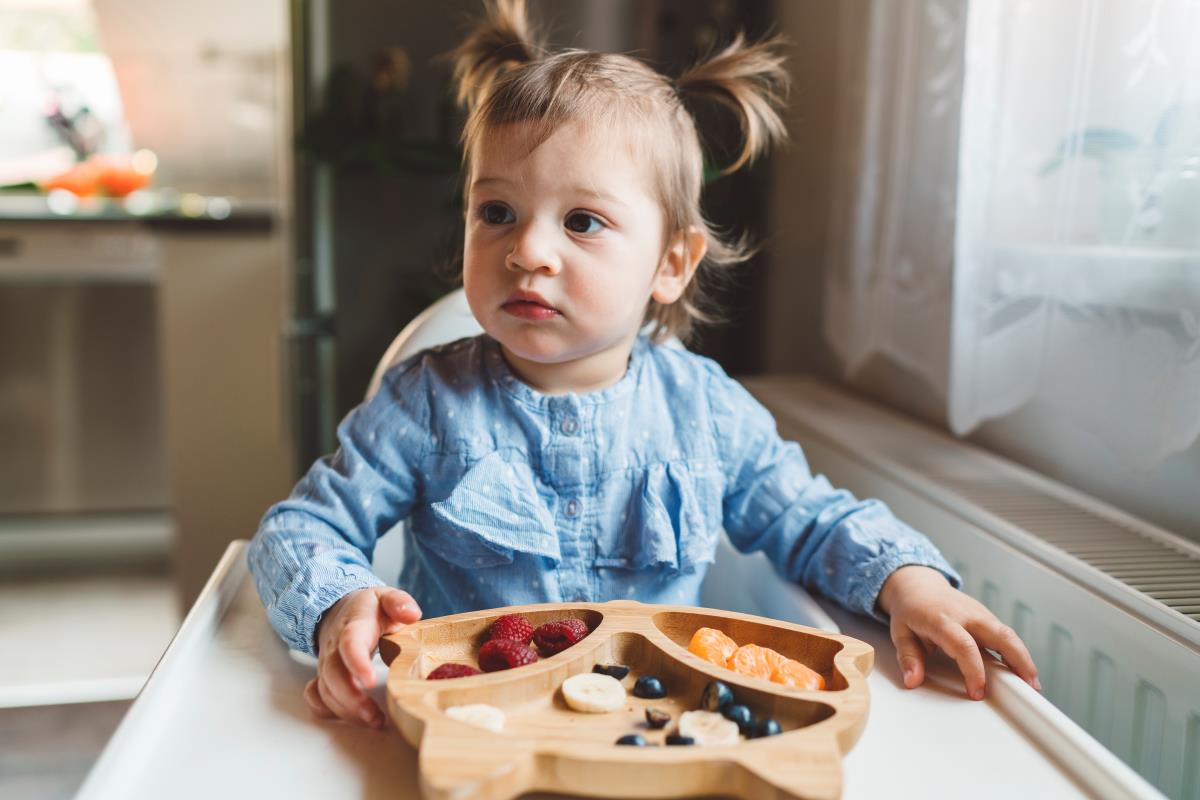
Feeding Milestones for an 18 month old:
- Self-Feeding: Most children between 15 and 18 months of age try self-feeding(with parents' guidance and supervision).
- Variety in Diet: Able to eat solid foods, including soft fruits, vegetables, and small pieces of meat.
- Food Preferences: Starting to develop taste preferences and may express likes or dislikes more clearly.
7. Schedule and Routine Milestones For an 18 Month Old Baby
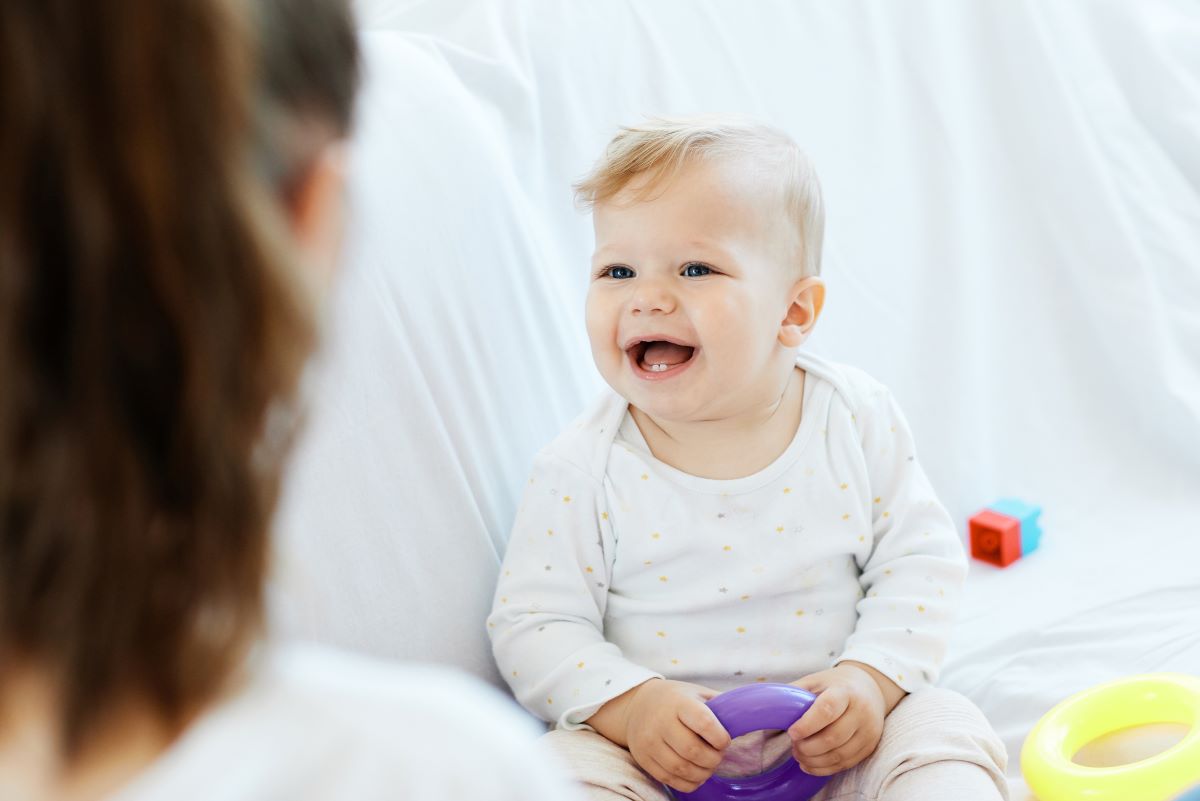
Here is the following schedule for an 18 month old:
8. Cognitive Milestones For an 18 Month Old Baby
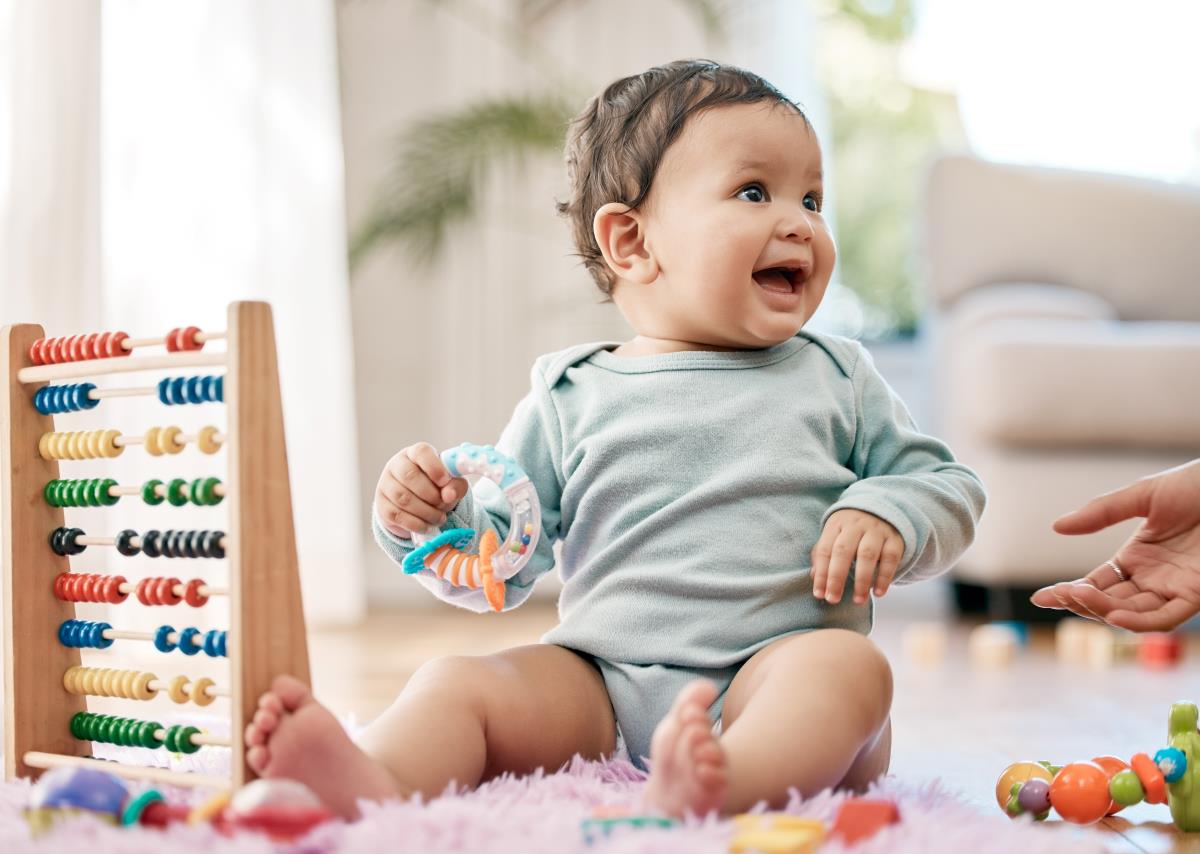
Here are key cognitive milestones for an 18 month old:
- Problem Solving: Young children start experimenting with some basic problem-solving activities after 18 months, for instance, figuring out how a box can be opened.
- Object Permanence: Realising something is there even if it’s not visible to the person.
- Memory: Recalls and expects certain activities or events to happen, for instance, bedtimes.
- Attention Span: Engages in one activity or plays with one toy for a relatively long time.
- Pretend Play: Participates in simple make-believe playing, like ‘cooking’ or ‘feeding’ a doll.
- Cause and Effect: Investigates and manipulates causal relations, such as pushing a button to cause a doll to glow.
9. Social and Emotional Milestones For an 18 Month Old Baby
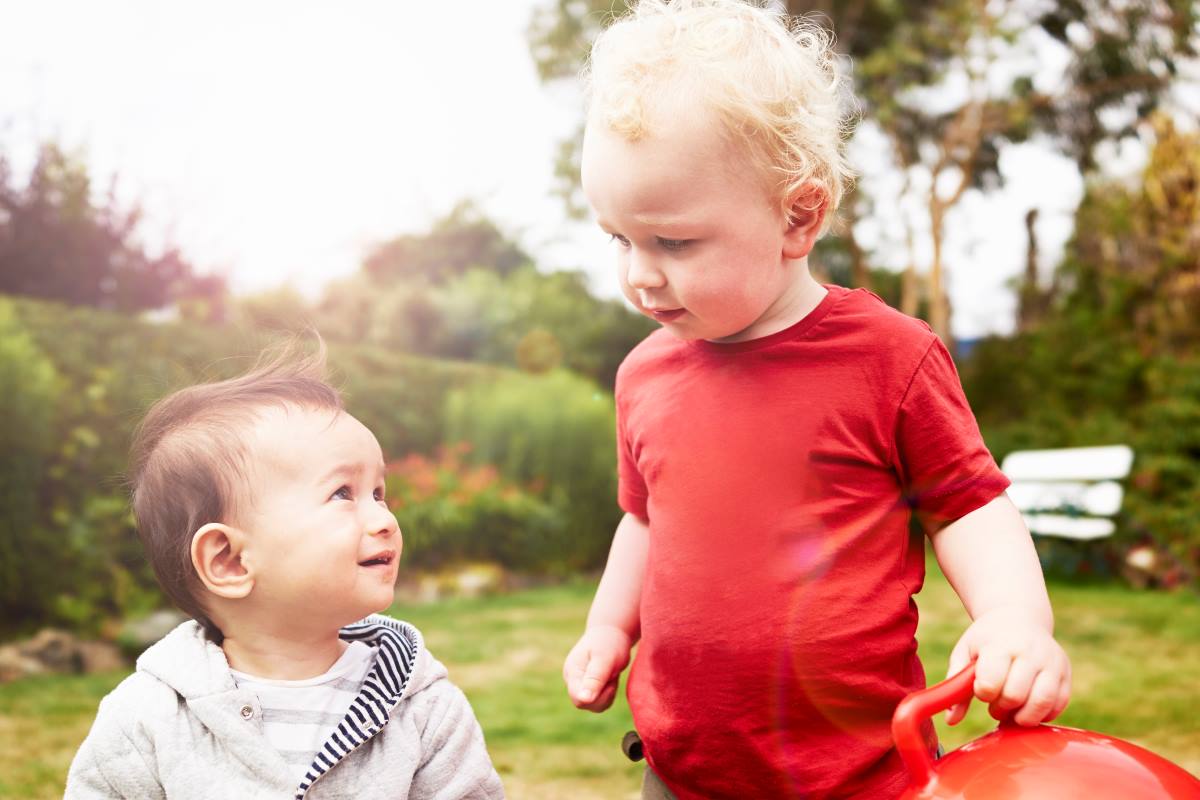
Social Milestones for an 18 month old:
Social milestones demonstrate how children relate to others and function better within society, indicating readiness to become more independent and understand issues better. A few Social milestones for an 18 month’s baby:
- Play Interaction: Starts parallel play with simultaneous children and begins some elementary group activities.
- Attachment: Indicates strong bonding with caregivers and may have difficulties being separated from them.
- Sharing: Children around this age will still struggle to appreciate the concepts of sharing, although they will be in the early stages of understanding them.
- Emotion Recognition: Understands the feelings of others by viewing their facial gestures, such as wiping the tears of a kid who is crying.
- Imitation: A child this age will engage in role-play, such as acting out cooking or answering phone calls.
- Social Smiles: Children respond to interaction by smiling and laughing at games played with them.
Emotional Milestones for an 18 month old:
- Self-Mirroring: Able to identify themselves at times within a mirror or picture, often using words to describe themselves.
- Empathetic Behaviour: They are beginning to demonstrate empathy in the early stages, for instance, in the ability to console a sad peer.
- Ability to Control Frustration: Able to express frustration and anger more clearly, like throwing tantrums or screaming.
- Showing Affection: Playing around and calling family members or friends with whom one is familiar; this involves hugging and kissing.
- Desire for the Child to be Self-Sufficient: This shows the need for the child to be self-sufficient and perform some activities independently without assistance.
- Attachment to a Particular Item: Develops dependence on certain playthings or things to aid in comfort, enhancing their sense of safety.
10. Language and Speech Milestones For an 18 Month Old Baby
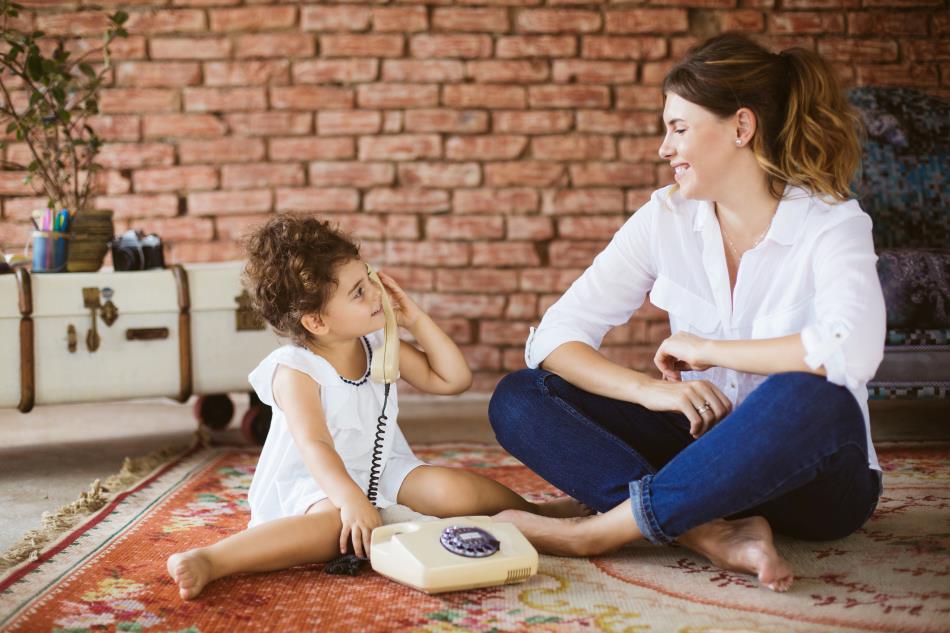
Language and Speech Milestones Development for an 18 month old:
- Vocabulary: Understands and communicates around 10-20 words and may also utter two words combining them.
- Understanding: Respond to some simple instructions and comprehend some essential words.
- Gestures: Indicate with hands some needs or things that arouse the child’s interest using gestures like pointing.
- Interaction: Responds to their name and is eager to engage and talk with others.
- Emotion Expression: Communicates emotions such as happiness or fury in words and actions.
11. Physical and Motor Milestones For an 18 Month Old Baby
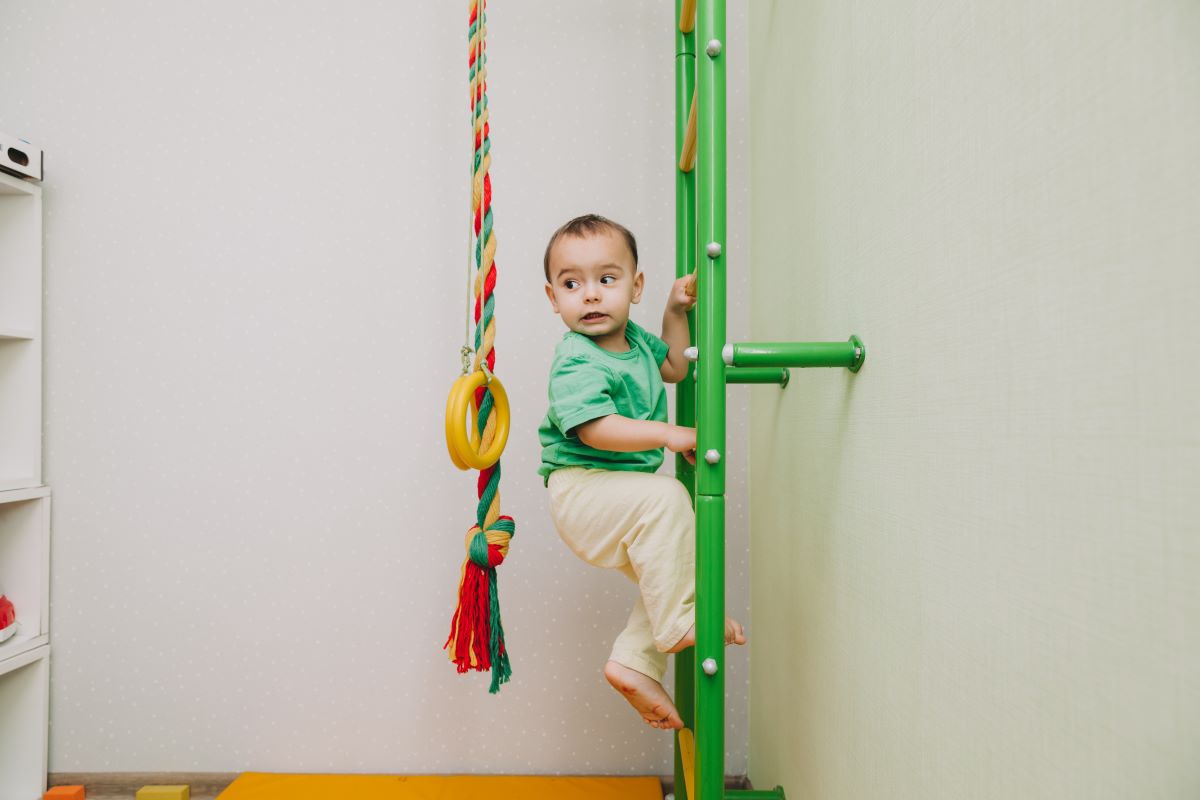
Physical and Motor Milestones for an 18 month old:
- Walking: Toddlers may start running or walking backward, making them more interactive.
- Climbing: Toddlers climb furniture and walk upstairs with someone's help, supporting their physical development.
- Kicking: The art of kicking starts when someone strikes forward with a ball or tries to throw something for the first time to aim at something.
- Dancing: Strutting to music appealing more than ever. The coordination of movements is above the previous levels.
- Squatting: The dog sits down, trying to get something, usually a toy or an object, and stands up, deploying no external help.
- Exploration: Moving around, exploring, and using new or improved motor skills for development.
Different Engaging Activities For an 18 Month Old
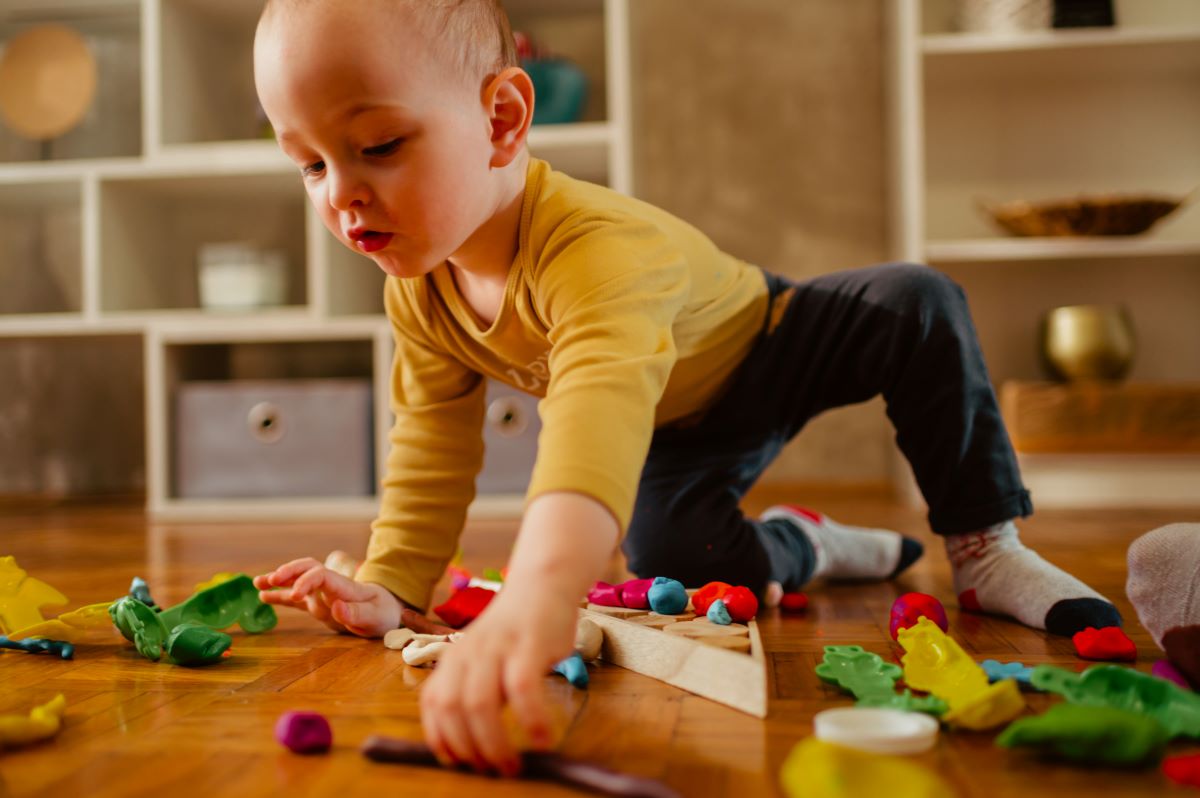
1. Building Blocks
Building blocks promote hand-eye coordination and cognitive skills. They correspondingly comprehend the development and stacking principles or sorting items according to shape, size, or anything else that promotes thinking and creation.2. Sensory Bins
Provide a bin containing rice, beans, or sand for the toddler to learn different textures. Sensory bins encourage toddler sensory development and may include additional small toys or objects to enhance exploration.3. Reading Picture Books
Reading picture books to children has positive implications for language development and comprehension. Get books with simple prints and colourful pictures to grab their attention. The activity also encourages social interaction.4. Musical Instruments
Provide user-friendly instruments such as tambourine and xylophone for a toddler's age. Music-making contributes to the development of auditory skills, coordination, and rhythm skills. Little ones like to play with different sounds and beats.5. Playdough Fun
An additional benefit of playdough activities is the improvement of fine muscular coordination and stimulating imaginative faculties. This activity allows the toddler to roll, squish, and shape the dough as they desire, promoting dexterity and imaginative play.6. Water Play
Water Play can be done by simply pouring water into a shallow basin and providing cups, spoons, and small toys. Water play is fun and helps develop the sense of touch and other motor skills. It’s an enjoyable way to let toddlers practice the fine arts.7. Solving Puzzles
Puzzles with large pieces and simple pictures should be used according to the child's capabilities. Puzzles help diagnose problems and correlate visual actions to verbal outcomes, thus boosting coordination.8. Outdoor Echildrenration
Bring your toddler to a garden or a park for a nature hunt. Playing actively out of doors assists the development of physically and enables them to see and hear various things. It provides a perfect chance to frolic and inhale oxygen in a fresh environment.9. Pretend Play
A simple make-believe area with toy kitchens or dress-up clothes can be created. Imaginative and pretend play helps develop creativity and social interaction. There is a tendency in toddlers to take and enact adult roles in their imaginative play.10. Treasure Hunt
Pose a simple treasure hunt by hiding some objects in the room. Clue your way around with objects or give them a very basic map. This will cultivate their ability to think of different ways to solve problems, and it’s fun.Safety Tips For an 18 Month Old Baby
Caring for a 6-month-old baby requires being careful with what is around the baby and supervising activities. Infants become more active at this age and often want to explore, which usually introduces more dangers. Safety precautions must be taken to reduce the chances of mishaps as the children tend to be adventuring their environment.
Savings & Protection Options for Your Child
How to Support a Baby's Development at 18 Months?
1. Encourage Physical Activity
Physical activity enhances the gross and fine motor skills of the child and, therefore, coordination in general. Activities such as walking, climbing, and ball play should be introduced to improve muscle strength and balance.2. Promote Language Skills
Language skills can be enhanced through communication, reading, and singing to the child. Talk to the child, point to things, name them, and use short phrases to increase the child’s vocabulary.3. Foster Social Interaction
Organising playdates and other group activities can help children develop social skills. To enhance social functioning, teach children how to play games that involve taking turns and sharing.4. Support Cognitive Development
Use age-relevant puzzles and problem-solving games to challenge their cognitive skills. Provide toys which facilitate cognitive challenges and the need to explore. Encourage the expression of feelings through words or actions to foster emotional intelligence.5. Ensure Safe Exploration
It is vital to put measures in place that will allow the child to grow and understand yet remain safe. To avoid many child-related accidents, baby-proof your house and let them have some space within which they can move freely.6. Enhance Fine Motor Skills
Engage your baby in activities that improve hand-eye coordination and dexterity, such as stacking blocks or using simple tools. Fine motor skills are developed through tasks that require precise movements and manipulation of objects.7. Establish Consistent Routines
Routine helps provide stability and security, making transitions smoother for your baby. Establish regular schedules for meals, naps, and bedtime to create a sense of predictability. Consistent routines support overall well-being and development.When to Talk to the Paediatrician?
Developmental Concerns:
Certain developmental milestones, such as walking and talking, may be late in development in some children.Behavioural Issues:
Continual aberrant behaviours such as tantrums, aggression and even separation anxiety should be reported to the paediatrician.Health Issues:
The baby may show signs of illness or discomfort, such as lethargy, fever, rash, and cough, which should be reported to the paediatrician.Nutrition Concerns:
It is useful to talk to a paediatrician if there are concerns about the baby concerning feeding, growth, or weight.Sleep Problems:
In cases of acute sleep-related issues, your infant may have trouble sleeping, frequent night waking, etc.FAQs about 18 Month Developmental Milestones
What are typical physical milestones for an 18 month old?
How many words should an 18 month old be able to say?
What social behaviours are common at 18 months?
How can I encourage language development in my 18 month old?
What kind of play is beneficial for an 18 month old?
How many hours of sleep should an 18 month old get?
What are common feeding milestones for an 18 month old?
When should I be concerned about my 18 month old’s physical development?
How can I support my child’s social skills for 18 months?
What are the signs of developmental language delays in 18 months?
How can I ensure a safe environment for my 18 month old?
How often should I schedule check-ups with my paediatrician for an 18 month old baby?
What are the signs of a healthy weight and growth for an 18 month old?
What is the milestone for 18 months speaking?
What is the cognitive development of an 18 month old?
What should I teach my 18 month old?
What commands should an 18 month olds know?
Important Articles about Infant Developmental Milestones




















